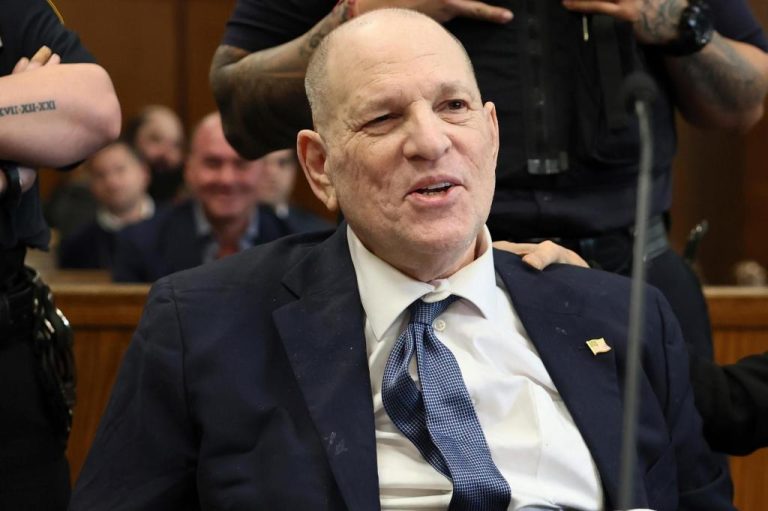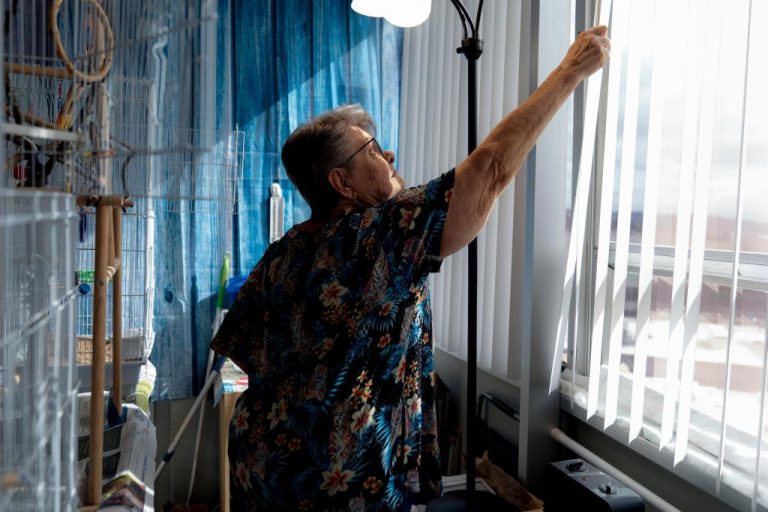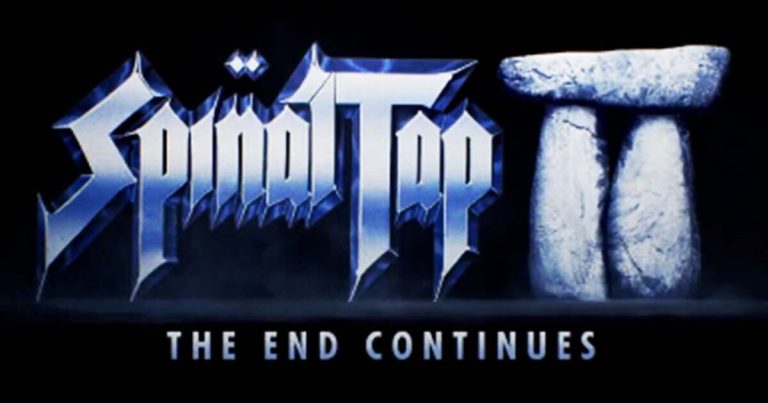California’s Commission on Judicial Performance issued a rare “severe” public censure Wednesday to San Diego Superior Court Judge Howard Shore over what it called a “serious dereliction of duty” for missing 155 court days without authorization in 2021 and 2022.
An investigation found that, among other unexcused days off, Shore did not show up to work at the courthouse on a single Friday over an 18-month period from May 2021 to November 2022.
“The commission determined that Judge Shore’s misconduct demonstrated a flagrant disregard for his obligations to his fellow judges, the public, and the reputation of the judiciary and that Judge Shore’s misconduct seriously undermined public confidence in the integrity of the judiciary and cast disrepute on the judicial office,” the commission said in a news release.
Shore’s discipline was the result of a stipulation between his attorneys and the commission, which approved the discipline last week.
“Judge Shore is honored to have served on the San Diego bench for nearly 34 years,” his attorneys Heather Rosing and David Majchrzak wrote in a statement. “Except for conduct described in the censure, for which Judge Shore has sincerely apologized and entered into a stipulated resolution, he has long been known for his hard work, thoughtful decisions, and deep dedication to the judiciary. He thanks his family and colleagues for their support, and he looks forward to continuing to serve the people of the State of California.”
Short of removal from the bench, a public censure is the strongest sanction the commission can impose on a judge.
Since 1995, when a voter-approved proposition gave the commission disciplinary power, it has removed 17 judges and censured 45, according to statistics provided by the commission.
Shore is the second judge censured this year, along with a San Joaquin County judge whose misconduct involved the promotion of a nonprofit that he founded. He is the third San Diego County judge censured since 2010.
Shore has been a Superior Court judge since 1998, presiding over both criminal and civil cases, and before that was a judge in San Diego County Municipal Court beginning in 1990. He is a 1972 graduate of the University of San Diego School of Law who worked for 16 years as a deputy district attorney before becoming a judge. According to USD’s website, he’s also an adjunct professor who has taught at the university since 1980, teaching a scientific evidence course that he developed himself.
San Diego County Superior Court Presiding Judge Michael Smyth launched an investigation of Shore’s unauthorized absences after hearing from court staff in November 2022 that Shore “had been difficult to engage, due to his frequent absences,” according to the stipulation between Shore and the commission. Smyth also heard from staff that Shore had not completed absence requests and that his calendar showed him as “off” nearly every Friday.
Smyth reviewed access card records showing how often Shore entered the courthouse or the courthouse parking garage, as well as the telephone activity from his chambers.
Smyth “concluded that Judge Shore had been absent from the courthouse at least 155 days, including nearly every Friday, without approval,” according to the stipulation. “Judge Smyth further determined that, even if Judge Shore had requested authorization to use vacation time for those days, his absences exceeded the vacation available to him by 87 days.”
On Dec. 1 of last year, Smyth and Assistant Presiding Judge Maureen Hallahan met with Shore to discuss his absences. He initially denied taking unauthorized absences or skipping work on Fridays but later admitted that he was not showing up most Fridays. He told Smyth and Hallahan that he needed to travel to Los Angeles most Fridays to attend to family needs, including health issues, and required travel during the day because his Orthodox Jewish mandates for the Sabbath prevented him from traveling Friday nights or Saturdays.
His attorneys said Wednesday that Shore’s grandchild was born with “certain medical conditions” and that the judge went to Los Angeles each weekend to help his son and daughter-in-law. “He, admittedly and regrettably, made the poor decision to leave late on Thursdays or early on Fridays to avoid traffic and arrive in time to help complete preparations for the Friday night Sabbath meal,” his attorneys said. “He deeply regrets this inexcusable conduct and his lapses in judgment.”
Later during the same meeting with Smyth and Hallahan, Shore said he “rationalized taking Fridays off regularly because he took work home with him at night, completed his work within the other four workdays, and because he saw other judges leaving early,” according to the censure stipulation. “He acknowledged that he was aware judges are not entitled to compensatory time for hours worked outside of normal court hours.”
Later on that same day, Shore emailed Smyth and Hallahan “admitting and explaining his absence” for 59 of the 155 days. He sent a second email stating that on the Fridays he had not gone to Los Angeles, he had been in the courthouse working.
“Since I didn’t need staff on Fridays, there would be no one to verify my attendance,” he wrote in part, according to the stipulation. “I would work in chambers, and the courtroom would be dark. The problem is, I have no records of when I was in San Diego on a Friday. But it would be inaccurate to say I took every Friday off. If I wasn’t going to L.A., there would be nothing else to occupy my time and no reason for me not to come to work.”
It was later determined that Shore did not work a single Friday between May 28, 2021, and Nov. 22, 2022.
“Judge Shore’s numerous unauthorized and undocumented absences from the courthouse constituted a dereliction of duty, a persistent failure to perform his judicial duties, and a failure to follow the directives of the presiding judge in matters of court management and administration,” the commission wrote in the stipulation.
The commission determined Shore’s conduct violated eight canons of the Code of Judicial Ethics.
Shore is the first San Diego County judge to face such discipline since Judge Gary Kreep, who in 2017 also received a severe public censure over 29 incidents of misconduct. The commission found that Kreep “engaged in a pattern of misconduct that demonstrated a lack of judicial temperament” by failing to adhere to election laws and “(running) his courtroom in a manner that was undignified and suggested bias or prejudgment.”
In 2010, San Diego Superior Court Judge DeAnn Salcido stipulated to a public censure with the provision that she resign and never again seek state judicial office.
Salcido, who had been a judge since 2002, admitted that she recorded herself in court without authorization “for the purpose of promoting herself for a role in a potential television entertainment program.” Salcido later allowed a television producer to film in her courtroom without the proper authorization and made numerous improper remarks.







